Armour
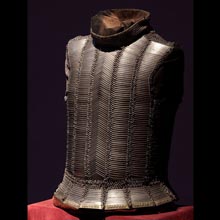
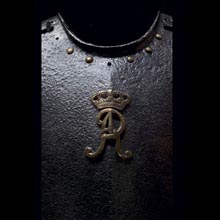


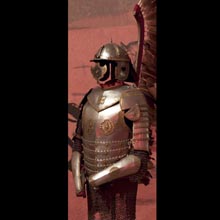
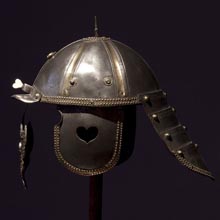
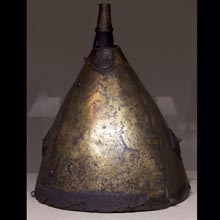
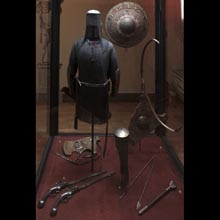
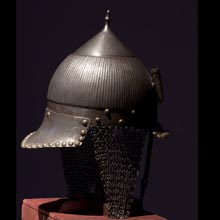
The collection of armour, the heart of which is the hussar armour from the 17th and 18th centuries, is one of the largest in Poland. Prominent items in this collection are the Hussarian fish scale armour owned by Hetman Stanislaw Jan Jablonowski and the Hussar armour of the Wielogłowski family from the mid-17th century. A priceless historical piece is the Behteret armour dated to 1560 – one of two surviving suits of this type in Poland, and as is Hussar breastplate with fualds dating from the 16th century, known as an anima. In its collection of Western European armour the museum boasts a Renaissance suit dating from 1560, comprised of elements from the finest metalsmiths of Europe of the period, Augsburg, Nuremberg, and Brest, and made famous by the painting The Prussian Homage [Hołd pruski], in which the painter Jan Matejko depicted the Grand Master of the Teutonic Knights Albrecht Hohenzollern dressed in it. In addition to complete suits of armour, the collection preserves elements of armour that were once part of a larger whole, among which there is a face plate from the helmet of Holy Roman Emperor Charles V, dating from 1530 to 1545. Other valuable artefacts include a breastplate made in Augsburg, decorated with a scene of the adoration of Christ, and a breastplate from the former Radziwiłł armoury in Nieśwież [now Nesvizh in Belarus]. The collection also contains helmets, beginning with 16th-century close helms and morions and continuing through 17th and 18th century Pappienheimer Zischagge helmets to 20th-century helmets used in both world wars.
Piotr Wilkosz












